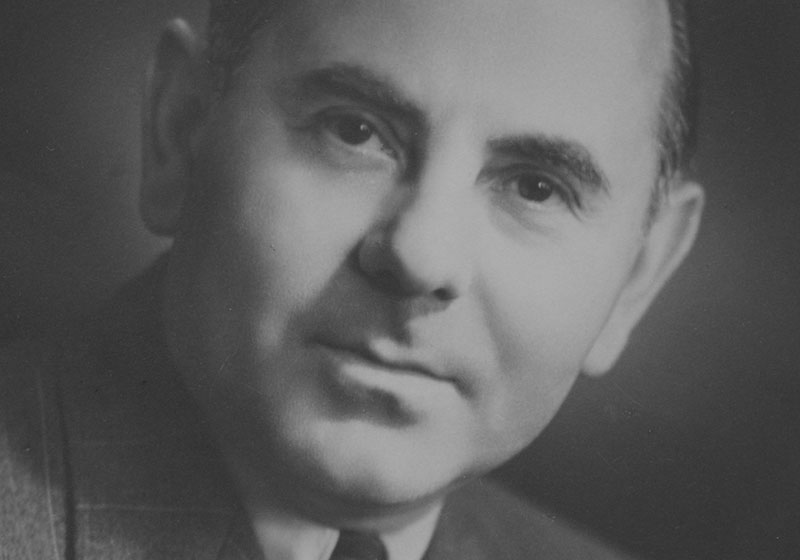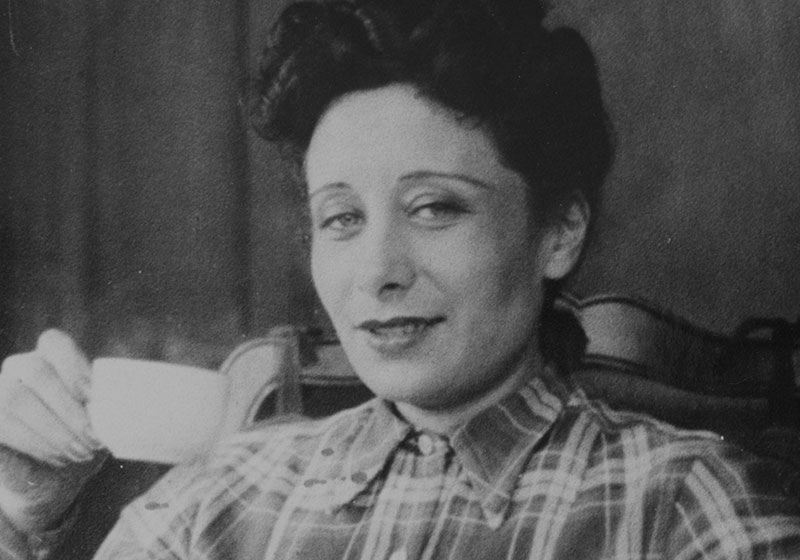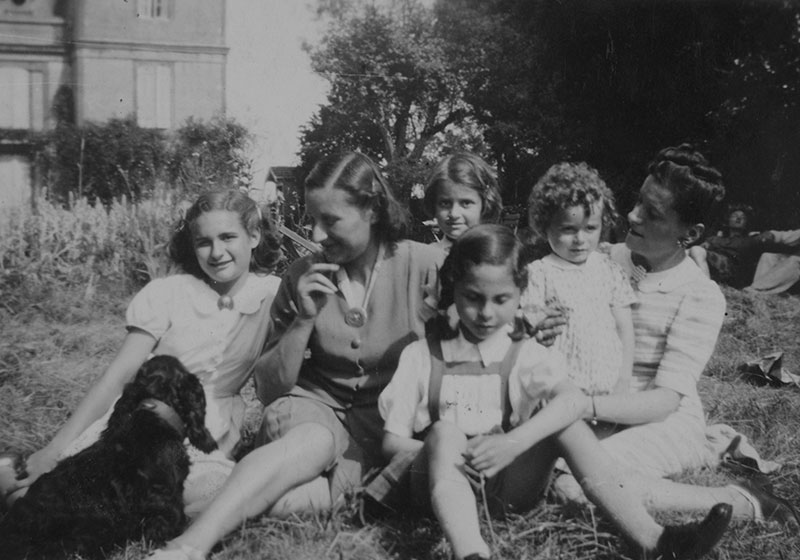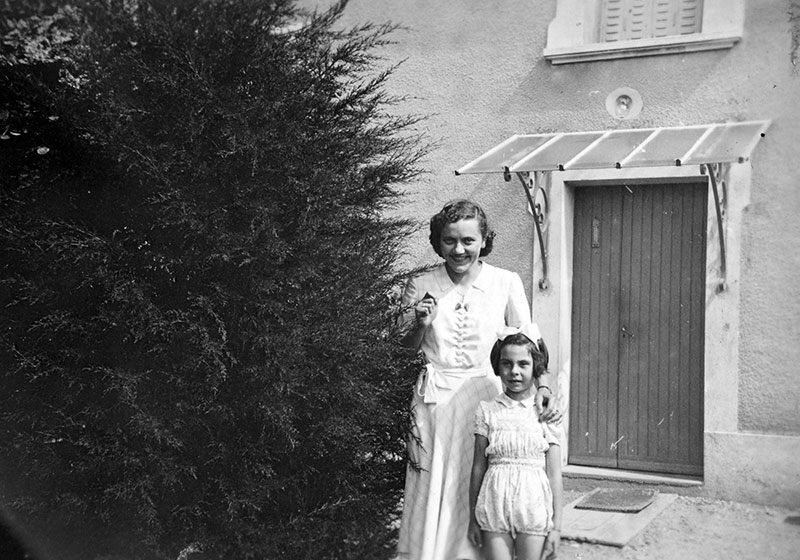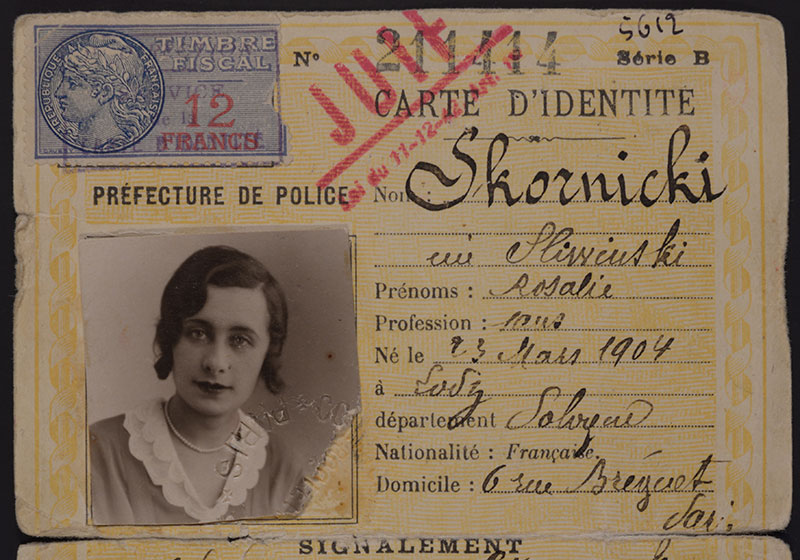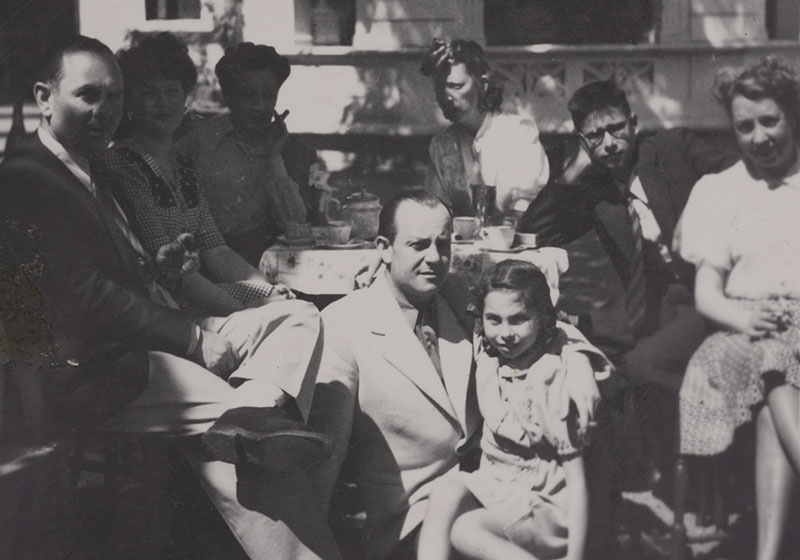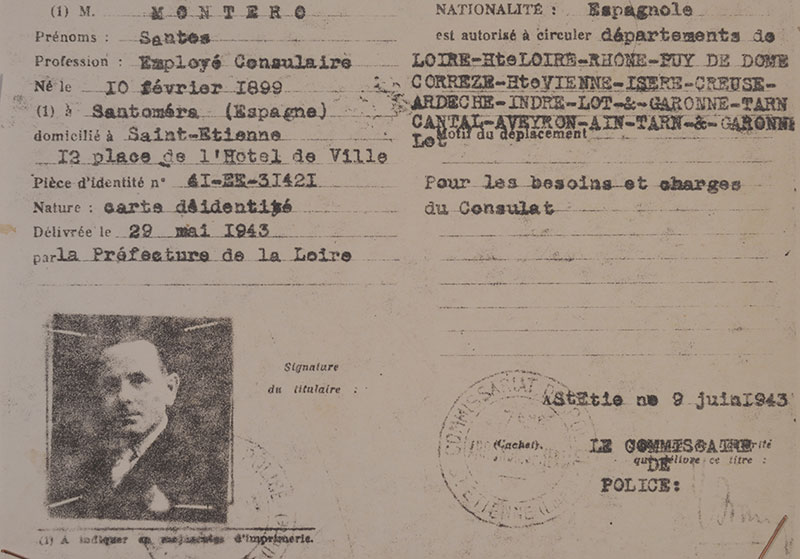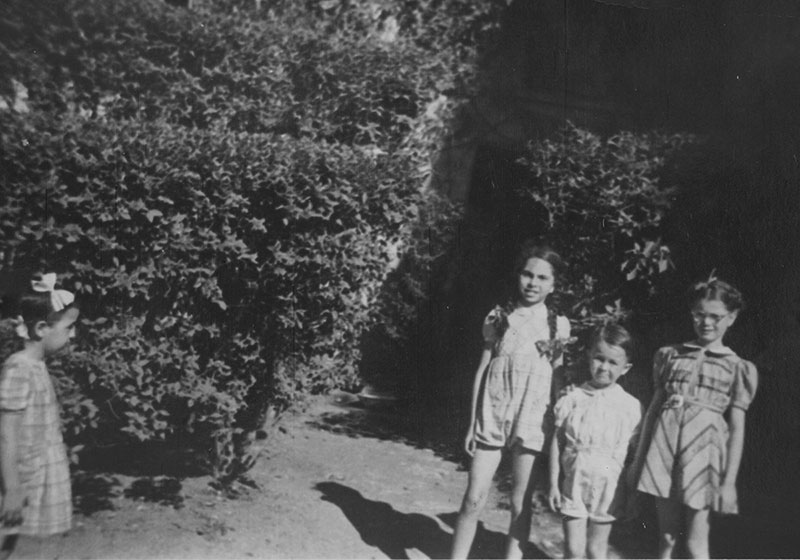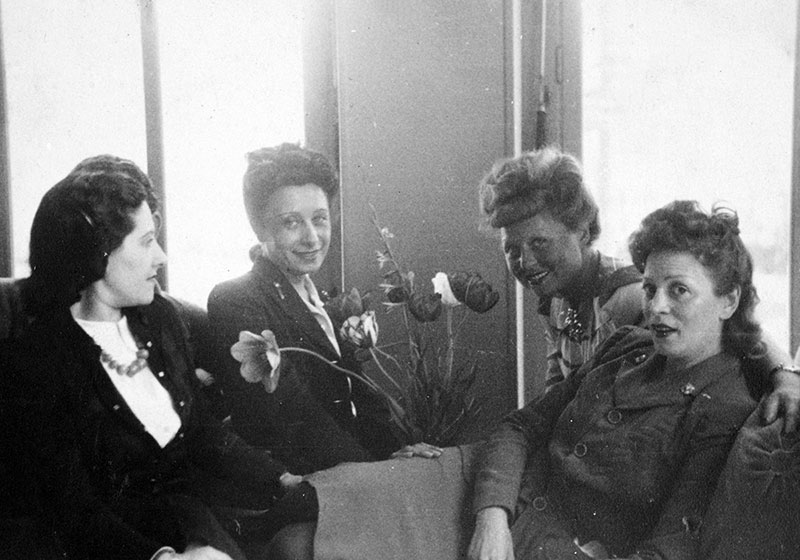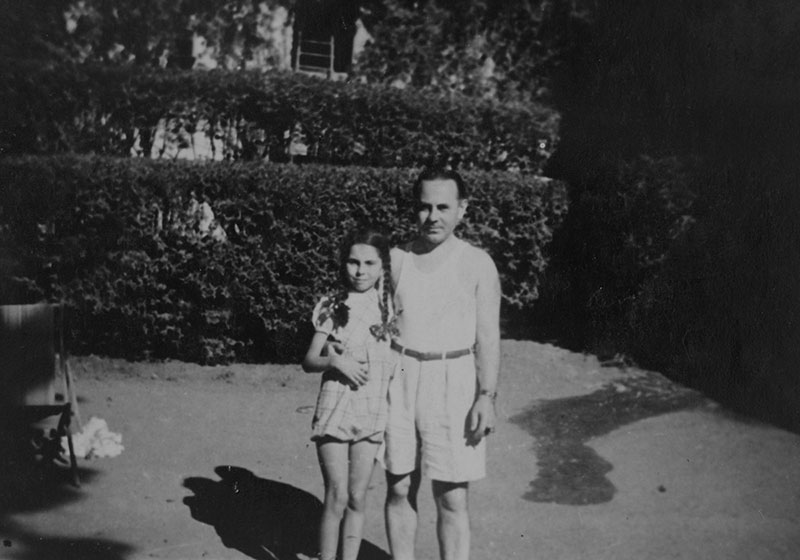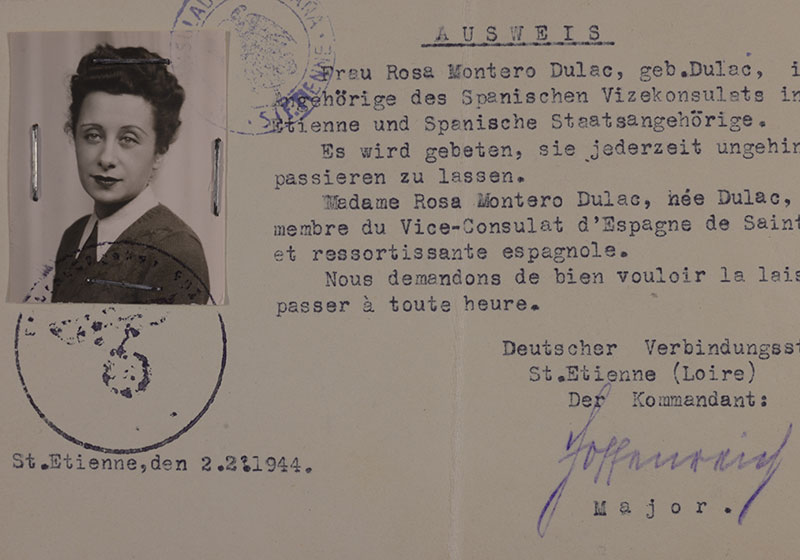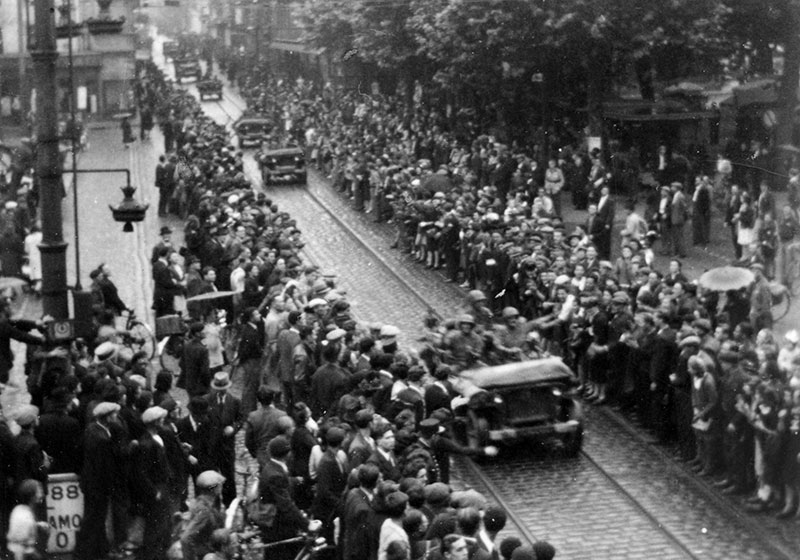Rescue by Jews: "One for All"
Samuel Skornicki – Santos Montero
How can I express my gratitude, and the gratitude of my family, for all we owe you? You didn't hesitate to risk your life in order to save ours. Knowing that we were being hunted by the Gestapo and the [French] Militia, you hid us in your home in those pivotal months before the liberation. If we are fortunate enough to live in peace and to be free, it is thanks to your heroic goodness and your courage. At a time when so many of our friends were tormented or died in terrible physical and emotional suffering, while so many children were separated from their parents, I am blessed to be surrounded by my whole family.
Itzkin Rubin wrote these words about his rescuer, Samuel Skornicki, after he found safe haven at the Spanish Consulate in St. Etienne, France.
Samuel Skornicki was born in 1899 in Tomaszów Mazowiecki, Poland. He married Raizel-Rosalie Sliwinsky from Łódź, and in 1923, the couple moved to Paris, where Skornicki studied law and qualified as a civil lawyer. Most of his clients were Jews who had emigrated from Poland.
The Skornickis, secular Jews, were comfortably off and lived in a large house in Paris. In 1934, their only daughter, Arlette, was born. Skornicki was a socialist in outlook. "My father wanted to live in France, the land of freedom and human rights", recalls Arlette. His mother and siblings immigrated to the USA.
After the occupation of France in June 1940, they left Paris for Toulouse. They moved Arlette to the town of Lavaur, where she lived with a Christian family. Samuel and Raizel came to visit her from time to time. Samuel had a valid passport and visa to the United States, but he chose to stay in France. In Toulouse, Skornicki ran a textile factory and was active in the resistance, disseminating pamphlets, helping British pilots to reach Spain, and providing people with false documents. While in Toulouse, Skornicki made connections, and met with the Spanish Consul, Enrique, who was posted in St. Etienne. The Consul needed someone with legal training and administrative skills to help him handle the many requests of Jews seeking to leave France, and appointed Skornicki legal advisor to the embassy. Skornicki received ID papers from the Consulate stating that he was a Spanish citizen by the name of Santos Montero. Raizel was given ID in the name of Rosa Montero. Skornicki took the name Montero from the label of a bottle of alcohol on the Consul's desk.
In 1942-3, the Consul left France and returned to Spain. He appointed Skornicki as his replacement in a lavish farewell ceremony in the presence of representatives of the Vichy regime, the German Army and the Gestapo. Skornicki-Montero thus became acting Spanish Consul in St. Etienne. Under his management, the Consulate became a hub where documents were forged, arms were hidden, and refuge was provided for Jews and French resistance members. In his meetings with the Gestapo, Skornicki sometimes saw lists of Jews destined for arrest. Succeeding in reading the names upside down on the sheet in front of him, he memorized them and warned the Jews in question.
Skornicki could not speak Spanish, but was assisted by the staff at the Consulate who were mostly Spanish Republicans who kept his true identity a secret. During his period of office, Skornicki managed to obtain exemptions for thousands of Spanish citizens slated to be sent to Germany for labor.
In March 1944, following an attack by the French resistance on a German train near St. Etienne, the Germans started a house-to-house search. A unit of German policemen arrived at the Consulate. Even before they commenced their search, a short, dark man burst out of the Consulate villa and kicked a German police sergeant. "Get out of here!" roared Skornicki angrily, "I am the Spanish Consul!" The policemen left in embarrassment. That same evening, the German Police Commander of St. Etienne presented himself at the Consulate, apologized to Skornicki and gave him a new gun for protection. Skornicki passed the gun on to the resistance members who had attacked the train and were at that moment hiding in the Consulate cellar.
After France was liberated, the Skornickis returned to Paris. People he had saved wrote him letters of thanks, so that he wouldn't be suspected of being a collaborator, having hosted Nazis at the Consulate and befriended members of the Gestapo during his time in office. In 1947, Jean Nocher's book, "The Heroic Story of the Patriot Skornicki-Montero" was published. The same year, the French government awarded him a medal and Certificate of Merit for his underground activities.
Skornicki passed away in Paris in 1974.
In 2019, his daughter, Arlette Ziessholtz-Foldes, donated documents and photographs to Yad Vashem as part of the national project "Gathering the Fragments", some of which are displayed here.

